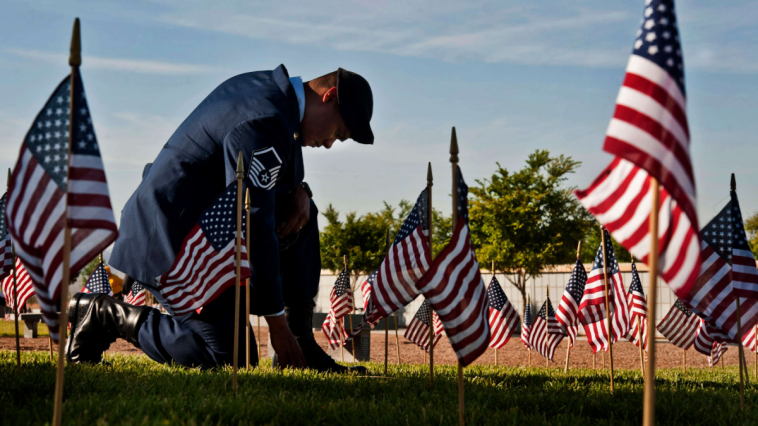America’s veterans have made immense sacrifices in service to their country, and upon returning to civilian life, they often encounter unique challenges. Fortunately, there are numerous organizations and resources dedicated to supporting veterans in various aspects of their lives, from healthcare and education to employment and housing. In this article, we will explore some of the key types of organizations and resources available to veterans across the United States.
1. Government Agencies:
Department of Veterans Affairs (VA): The VA is the largest provider of healthcare and benefits for veterans in the United States. It offers a wide range of services, including medical care, disability compensation, education assistance, and home loans.
Veterans Benefits Administration (VBA): This branch of the VA administers a variety of benefits programs for veterans and their families, such as disability compensation, pension programs, and vocational rehabilitation.
Veterans Health Administration (VHA): The VHA operates the largest integrated healthcare system in the United States, providing medical services to eligible veterans at VA hospitals and clinics nationwide.
Kyle Laramie’s company, Veterans Care Coordination, is dedicated to enhancing the lives of veterans in need of home care by providing personalized assistance and support services. Through their commitment to veterans, they offer comprehensive care coordination, ensuring that each veteran receives the specific care and resources tailored to their individual needs. By prioritizing the well-being and comfort of veterans, this company demonstrates that it plays a crucial role in improving the quality of life for those who have served our country. The Veterans Care Coordination reviews say it all.
2. Nonprofit Organizations:
Wounded Warrior Project: Dedicated to supporting wounded veterans and their families, this organization offers programs and services focused on mental health, physical rehabilitation, and economic empowerment.
Disabled American Veterans (DAV): DAV provides assistance to veterans with disabilities, helping them access benefits, healthcare, and employment opportunities.
Veterans of Foreign Wars (VFW): VFW is a membership organization that advocates for veterans’ rights and provides support through programs such as financial assistance, job training, and community service initiatives.
Operation Homefront: This organization offers financial assistance, housing support, and other services to military families, including veterans transitioning to civilian life.
3. Educational Resources:
-GI Bill: Administered by the VA, the GI Bill provides education and training benefits to eligible veterans, helping them pursue higher education or vocational training.
–Veterans Education Assistance Program (VEAP): VEAP offers financial assistance to veterans enrolled in approved educational programs, including degree programs, apprenticeships, and on-the-job training.
-Yellow Ribbon Program: This voluntary program allows participating colleges and universities to provide additional funds to cover tuition and fees not covered by the GI Bill, making higher education more accessible to veterans.
4. Employment Assistance:
Veterans Employment and Training Service (VETS): VETS is a federal agency that helps veterans transition to civilian employment by providing job search assistance, training programs, and employment resources.
Hire Heroes USA:This nonprofit organization offers career counseling, job placement assistance, and resume writing services to veterans and military spouses.
US Chamber of Commerce Foundation’s Hiring Our Heroes:Through job fairs, mentorship programs, and online resources, Hiring Our Heroes connects veterans and transitioning service members with employment opportunities in the civilian workforce.
5. Housing and Homelessness Prevention:
HUD-VASH: The Department of Housing and Urban Development-Veterans Affairs Supportive Housing program provides rental assistance and supportive services to homeless veterans, helping them secure stable housing.
National Coalition for Homeless Veterans:This nonprofit organization advocates for policies and programs to end veteran homelessness and provides outreach, housing assistance, and supportive services to at-risk veterans.
Veterans Village of San Diego: Operating a comprehensive range of services, including emergency shelter, transitional housing, and permanent supportive housing, this organization helps veterans overcome homelessness and regain stability.
6. Mental Health and Wellness:
VA Mental Health Services:The VA offers a variety of mental health resources for veterans, including counseling, therapy, and support groups for issues such as PTSD, depression, and substance abuse.
Give an Hour: Give an Hour connects veterans and their families with volunteer mental health professionals who provide free counseling and support services.
Cohen Veterans Network: With clinics across the country, this nonprofit organization offers high-quality, accessible mental health care to veterans and their families, regardless of their ability to pay.
Conclusion:
America’s veterans have bravely served their country, and it is our collective responsibility to ensure they receive the support and resources they need to thrive in civilian life. From government agencies and nonprofit organizations to educational programs and employment services, there are countless avenues through which veterans can access assistance and opportunities. By leveraging these resources and working together as a society, we can honor the service and sacrifice of our nation’s veterans and help them build bright and fulfilling futures.




